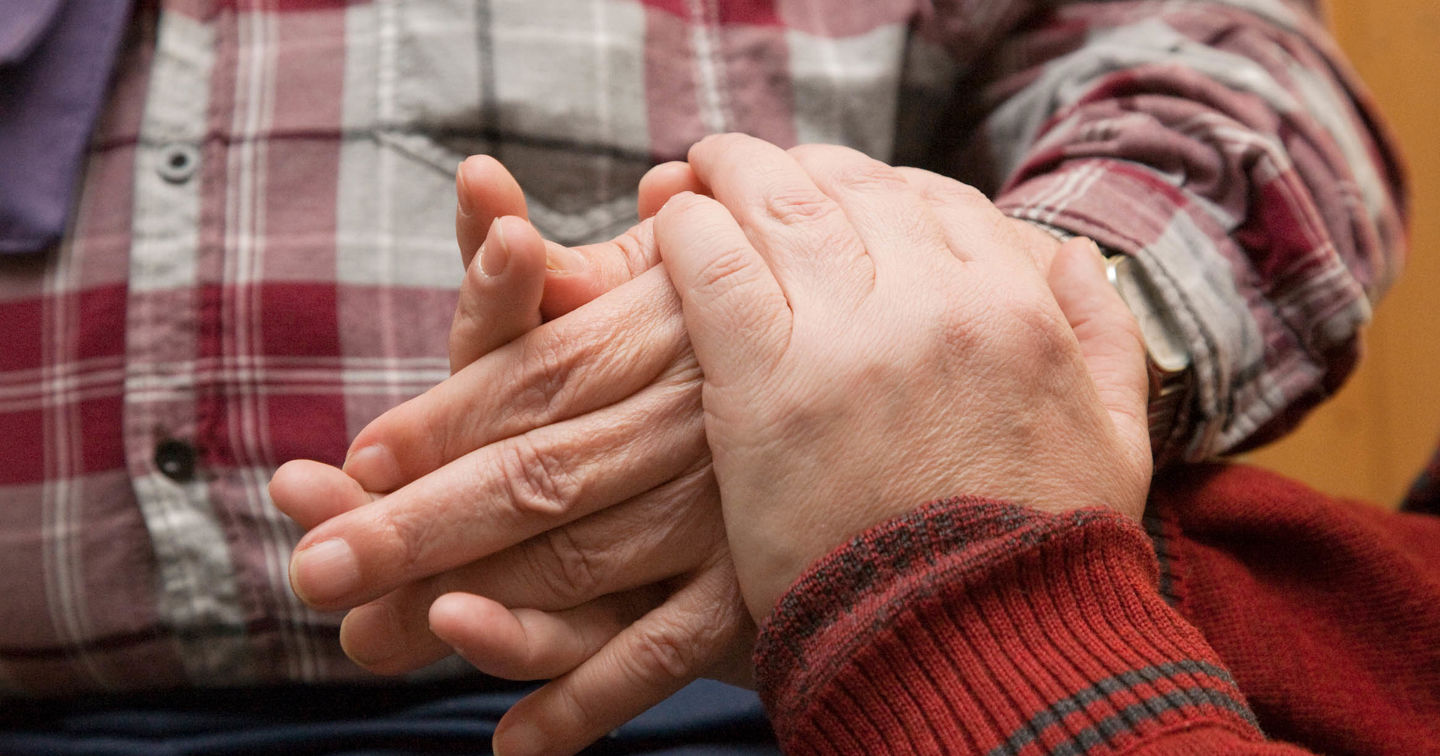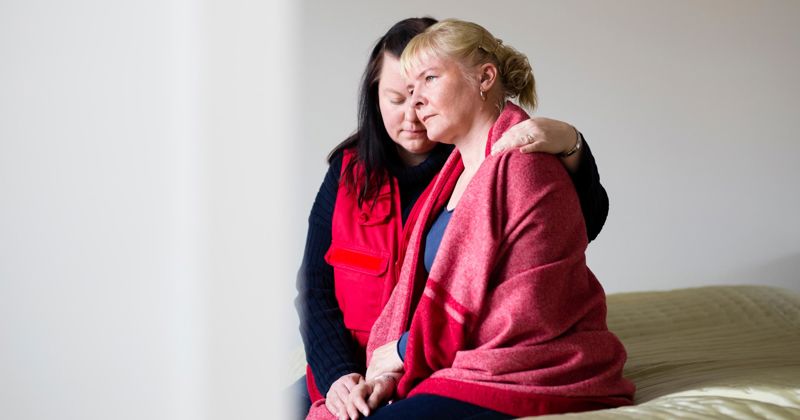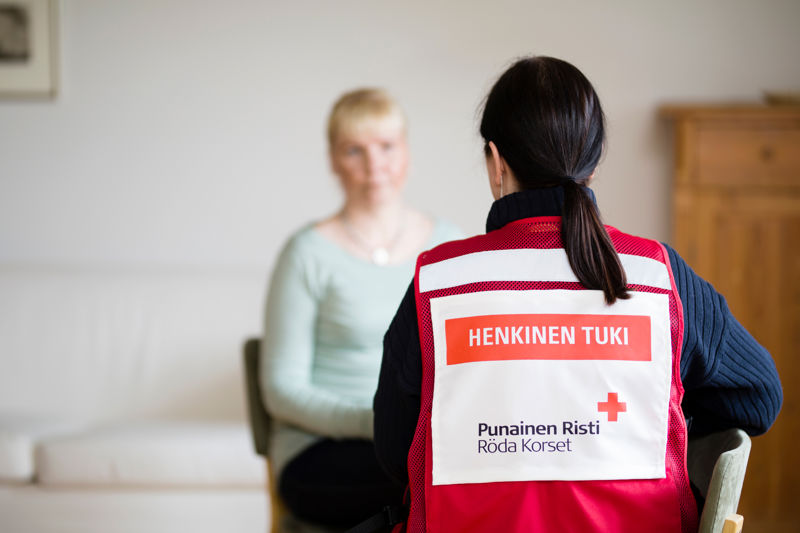Helping others cope in a crisis situation

Anyone can offer psychological first aid and help another person cope after a traumatic event.
A shock can be caused e.g. by divorce, serious illness, accident, death of a loved one or experiencing violence.
Psychological first aid means listening to the person in crisis, being a calming presence and guiding to additional help as needed. It has benefits both during the event and for a long time after it.
The person you help feels seen and heard and is assured that they do not need to cope with the situation alone.
Recognise the situation and crisis reactions
People react to traumatic events differently and at different times. The strength of reactions does not necessarily correspond with the need for aid.
By recognising the most common crisis reactions, you can better understand the behaviour of a person in a crisis and can lead them to professional help as needed.
If you are unsure whether a person needs or wants help, you can ask considerately. Often just being present and listening actively are enough.
How to help someone facing a crisis
- Make sure that the environment is calm and safe.
- Listen to the other person, be there for them.
- Do not pressure them to describe the event in detail or analyse the events.
- Accept their emotional reactions without judgement even when you find them difficult to understand.
- Do not fill the space with your experiences, when offering support to others.
- Help keep everyday routines going: you can help e.g. with shopping or childcare. But do not do everything for the other person.
- Remember to eat, sleep and exercise.
Talk about the help available and support them in seeking help from loved ones or health care services as needed.
When to seek professional help?
People may need help processing their crisis reactions even a long time after a traumatic event.
Help people seek professional help if
- They are constantly anxious, depressed or stressed.
- They constantly suffer from insomnia or sleep restlessly.
- Difficulties concentrating impact their everyday life.
- They have trouble with everyday routines: they cannot eat, they repeatedly skip washing themselves or cannot take care of their loved ones.
- They have trouble working or studying.
- They have unexplained physical symptoms.
- They have no one to talk to.
- Their relationships suffer or they withdraw from others.
- They behave erratically or easily lose their temper.
- They have had mental health issues or medication before the traumatic event and feel that they need help.
- They have lost their will to live.
- They are using too much drugs or alcohol.
- They talk about self-harm, suicide or harming others.
You can seek professional help through your local health centre, occupational health care or student welfare services. Various telephone and chat support services also offer discussion support.
Take care of your own coping
A crisis situation stirs emotions in the helper as well. Therefore, it is important that you recognise your own reactions and take care of your well-being.
Taking care of your own well-being is not selfish, but the responsible thing to do.
- Observe your emotions. Rest and take breaks.
- Remember that you do not need to nor can you solve the situation of another person alone or on their behalf. Identify the limits of your skills and coping, and lead the person you are helping to additional help as needed.
- Also, get help for yourself should you need to.


